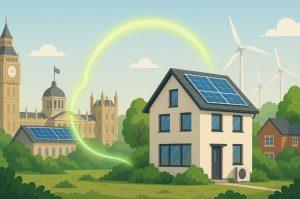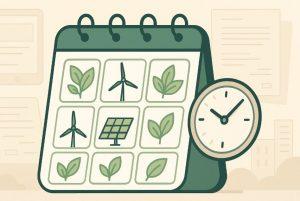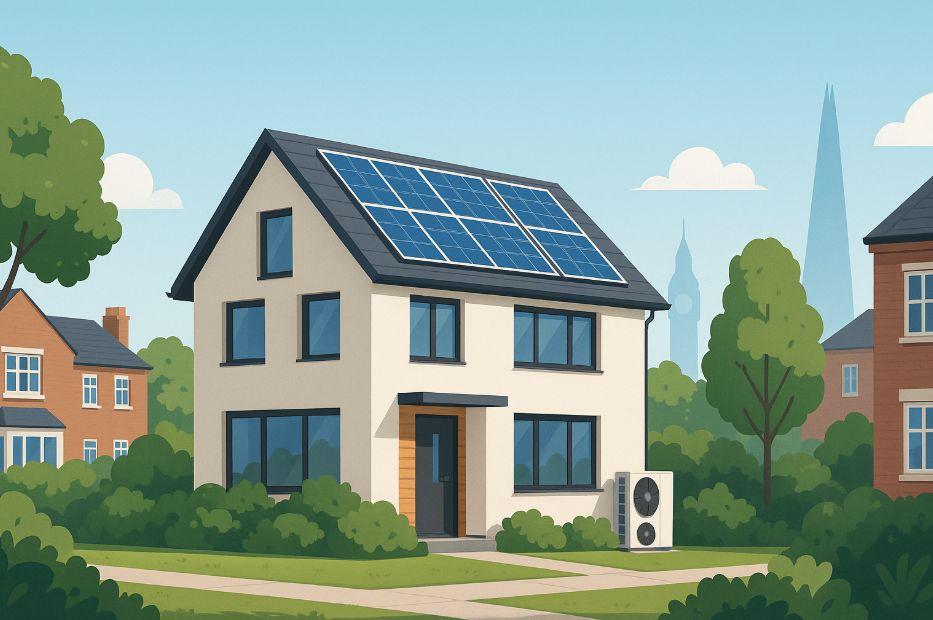In 2025, the UK government continues to offer eco funding schemes to support greener homes and businesses. These programmes help Londoners reduce energy bills, improve property efficiency, and contribute to the country’s net zero goals. This guide explains how to apply and make the most of the available support.
What Is an Eco Government Funding Scheme in the UK?

Eco government funding schemes are part of the UK’s wider commitment to sustainability and climate action. These initiatives provide financial support to homeowners and businesses looking to improve the energy efficiency of their properties.
Whether it’s upgrading heating systems, adding insulation, or switching to renewable energy sources, these schemes make green transitions more affordable. In 2025, they’re more vital than ever, offering relief from rising energy costs while pushing the nation towards its net zero goals.
What Types of Eco Government Schemes Are Available in 2025?
Several key schemes are available this year, each targeting a different aspect of eco-friendly living. The Energy Company Obligation, now in its fourth phase (ECO4), remains the backbone of home energy improvement support, especially for low-income households. It helps fund insulation, efficient heating systems, and more, all tailored to reduce carbon output.
For those looking to move away from gas boilers, the Boiler Upgrade Scheme offers grants to install air source and ground source heat pumps. Meanwhile, innovative initiatives like the Green Home Finance Accelerator are encouraging banks and mortgage lenders to support homeowners in financing sustainable upgrades.
Local authorities, particularly in London, are also running their own programmes to complement national funding and reach residents who may otherwise fall through the cracks.
Who Is Eligible for These Eco Funding Schemes?
Eligibility criteria vary between schemes, but several key factors determine whether someone can qualify. Many are aimed at individuals with lower household incomes or those receiving government benefits. However, eligibility is increasingly tied to property characteristics especially homes with poor Energy Performance Certificate (EPC) ratings.
Certain boroughs in London may also offer additional support for households in older or less energy-efficient buildings, broadening the range of applicants who qualify.
In most cases, you don’t need to navigate the process alone. Certified installers play a crucial role by assessing your eligibility and submitting applications on your behalf, simplifying the process and reducing confusion.
How Can London Residents Benefit from Eco Funding?

Living in London has its unique energy challenges. Many homes were built before modern insulation standards and are expensive to heat. Fortunately, residents in the capital are well-positioned to benefit from eco funding due to several targeted schemes.
The Greater London Authority (GLA) works alongside local councils to provide top-up grants, technical advice, and energy assessments. Schemes such as the Warmer Homes programme have already helped thousands of Londoners improve their homes. These initiatives not only lower energy bills but also increase property value and comfort levels a welcome change during long winters and rising utility costs.
How Do You Apply for an Eco Government Funding Scheme?
Applying for eco funding may seem complicated at first, but the process is designed to be accessible. Most schemes begin with a basic eligibility check, which can be done through government websites or directly through accredited service providers. If you’re eligible, a qualified assessor will visit your property to conduct an energy survey and determine the most suitable upgrades.
After the assessment, the application is submitted by your installer or advisor. Once approved, work can begin often at no cost to you. Although each programme may have specific steps, the overall process is streamlined and intended to be hassle-free.
What Are the Financial and Environmental Benefits?
The advantages of applying for these schemes are both immediate and long-term. Financially, homeowners can save hundreds of pounds each year through improved insulation and efficient heating. In a time when energy bills are a major household expense, these savings are significant.
Environmentally, the impact is just as important. Reducing energy waste lowers carbon emissions, bringing the UK closer to its climate commitments. Properties upgraded through these schemes typically achieve higher EPC ratings, making them more attractive in the property market and more comfortable to live in year-round.
Are There Deadlines or Changes in 2025 to Be Aware Of?

Each funding scheme operates on its own schedule, and some are more time-sensitive than others. The ECO4 programme, for example, is set to run until March 2026, but funds are allocated on a rolling basis and may run out earlier in certain regions. Updates in 2025 have also broadened access, making it easier for more households to qualify but this has increased demand significantly.
Other schemes, such as the Boiler Upgrade Scheme, have a fixed funding cap, and homeowners are encouraged to apply sooner rather than later. It’s essential to stay up to date by checking official websites or speaking with approved service providers regularly.
What Are the Most Common Myths About Eco Government Schemes?
Despite the growing popularity of these programmes, misconceptions still prevent many people from applying. A common myth is that only people on benefits can qualify while this may have been more accurate in earlier versions of ECO, today’s schemes often use other criteria like property type and energy efficiency.
Another misunderstanding is that the application process is too difficult or time-consuming. In truth, most of the legwork is done by trained professionals who manage the paperwork and approvals.
Lastly, many assume eco upgrades are only for rural or detached homes, when in fact, urban areas like London are key targets for government-led sustainability programmes.
How Can Businesses in London Leverage These Schemes?
London-based businesses, especially SMEs, can access various forms of eco funding to lower energy consumption and reduce operating costs. Programmes like the Industrial Energy Transformation Fund (IETF) provide capital for switching to cleaner industrial technologies.
Additionally, local authorities offer support for businesses aiming to improve their environmental performance through energy audits, retrofit projects, and even green certifications.
These schemes not only reduce utility bills but also enhance a company’s reputation among environmentally conscious consumers and investors. For any London business aiming to remain competitive in a greener economy, exploring these options is a strategic move.
Overview of Major Eco Government Funding Schemes in 2025
| Scheme Name | Focus | Funding | Eligibility | Application |
| ECO4 | Insulation & Heating | Fully funded | Low-income, poor EPC | Through approved installer |
| Boiler Upgrade Scheme | Heat Pump Installation | Up to £7,500 | Homeowners, good EPC | Via GOV.UK portal |
| Green Home Finance | Loans for Eco Upgrades | Variable | All homeowners | Through financial providers |
| IETF | Business Energy Improvements | Project-based | SMEs & Large Businesses | BEIS Application Portal |
Conclusion
In 2025, eco government funding schemes are more inclusive, accessible, and impactful than ever before. For Londoners, the opportunity to cut costs while contributing to environmental goals is too good to ignore.
Whether you’re hoping to improve your home’s energy efficiency or make your business more sustainable, the financial and long-term benefits are well worth the application effort. With expert guidance, modern tools, and growing awareness, now is the perfect time to take advantage of what’s available.
FAQs
What is the ECO4 scheme and who can apply?
The ECO4 scheme supports low-income households living in inefficient homes by funding insulation and heating upgrades at no cost.
Can London renters benefit from these schemes?
Yes, with landlord permission, many tenants can apply or be included in applications for eco funding.
Do I need to have a poor EPC to qualify?
Not always, but many schemes prioritise homes with lower EPC ratings to maximise impact.
Is the application process difficult?
Not at all certified installers handle most of it, from assessment to submission.
Can I apply even if I’m not receiving benefits?
Yes. Some schemes focus on energy efficiency or location rather than income alone.
Will eco upgrades affect my property’s value?
Positively. Homes with better energy ratings are more attractive to buyers and renters alike.
Where can I start the application process?
Visit official sites like GOV.UK or contact a registered installer for a home assessment and next steps.









Leave feedback about this